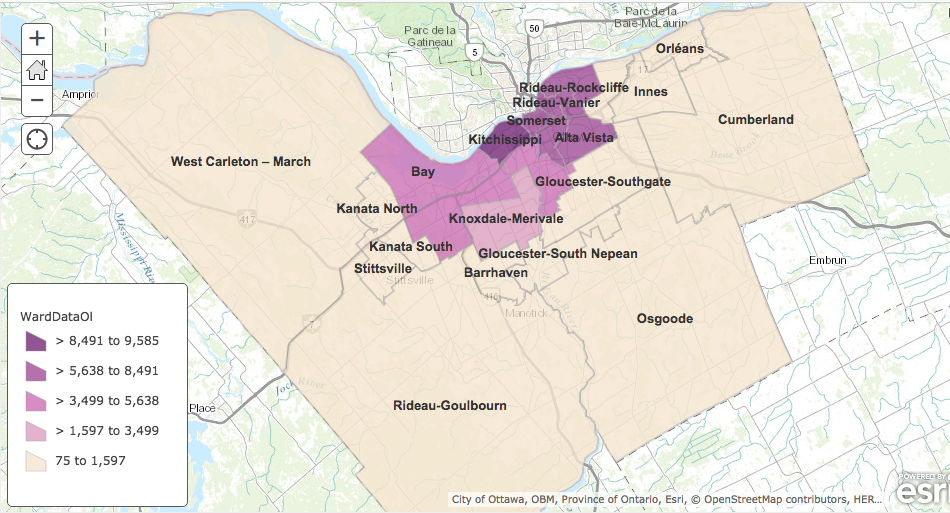The charm of old, quaint, historic neighbourhoods tends to captivate people. There’s something special about living in a home that has seen many different sets of feet passing through its threshold generation upon generation.
In Ottawa, Kitchissippi ward is where this appeal seems to be the strongest – with the highest number of people living in homes built in the 1960’s or before – according to an analysis of 2011 National Household Survey data.

Dave Allston thrives off of this special fact. He’s a local history buff that began doing what he calls “house histories” during high school back in the 90s. He would trace down who the builder was, when the house was built, and chronicle who had lived in it.
Allston began by looking into his own home in Kitchissippi, which has been in his family for six generations.
“Last year we had someone over; he was a baby when the house was built in 1927. He came and saw the house his parents had bought. It was awesome to have him in the house and connect that ninety-year difference,” he said.
When people became interested in his work, Allston began a business out of putting together house histories for homeowners. Sometimes he would even come across eerie murder or suicide histories.
“People find it really neat … I’d warn them, but they’d say ‘tell me everything!’ There’d be a newspaper article with a picture of a body being carried out the front steps and they’d frame it up!” he laughed.
House histories took Allston thirty to forty hours each to complete, but he said he “could

never charge enough to make it worthwhile, and nor did I want to charge too much.”
As of this past January, Allston shifted to publishing two to three stories a week on his blog called the Kitchissippi Museum. He also writes history columns for Kitchissippi’s local paper.
But unfortunately, the ward may start running low on historic houses for Allston to dig his teeth into, with more of what he calls “modern boxes” popping up.
“I’m part of our community association here and we get alerts on when they’re putting up permits to demolish. There’s a couple every week that are going up,” said Allston.
In fact, according to City of Ottawa Construction, Demolition, and Pool Enclosure permit data, Kitchissippi has seen the
greatest number of demolitions out of any other ward in the city: 362 since January of 2011.
 “I pray for my heart every time I see a house get torn down,” said Allston.
“I pray for my heart every time I see a house get torn down,” said Allston.
He said the biggest problem for Kitchissippi is that people come for its “cozyness and quaintness,” but most have no problem paying for modern developments, so there’s a significant amount of money to be made in the area.
“Some people purchase homes in the area just to tear it down. They put up a double, sell each unit for $800 [thousand], and then take off with their half a million dollars in profit … They don’t care about the neighbourhood and what they’re doing to it,” said Allston.
Kitchissippi ward councillor Jeff Leiper said the loss of older homes is due to the city’s process of intensification and gentrification. Leiper said that in order to save old structures by designating them as heritage properties, the Ontario Heritage Act “sets a high bar.”
The Ontario Municipal Board recently approved a controversial 12-storey development on the corner of Island Park and Richmond/Wellington, which will demolish the oldest house on Wellington Street
According to Leiper, the house, while dating back to the 1890’s, was not worthy of protection simply because under the act, it did not meet the requirements.
Leiper said he hopes that during his term, he can work towards a “heritage overlay” – a protection of an entire neighbourhood – of Wellington Village, which he believes as a whole to be worthy.
As for Allston, he can rest assured that at least the oldest home in Kitchissippi – a stone house built by a Scottish farmer in 1828 – is still standing on Fuller Street, near Fairmont and Sherwood.
“There was many times where it was going to be torn down, but they’ve kept it up,” he said. “It’s got heritage status now and it’s in good shape so I think it can still last for a long time.”



